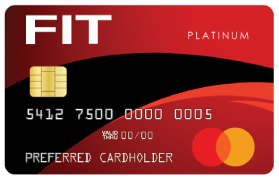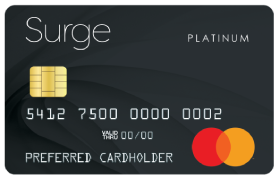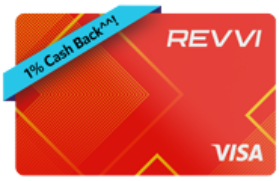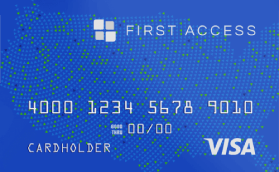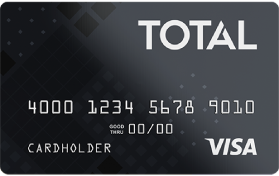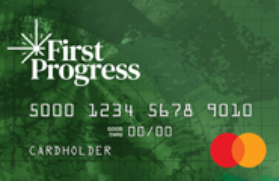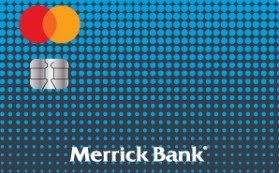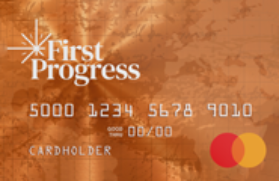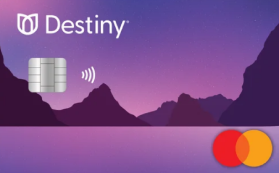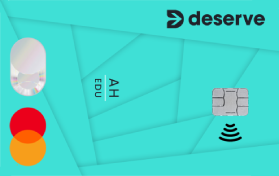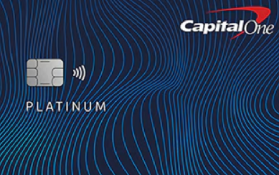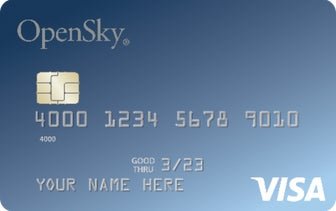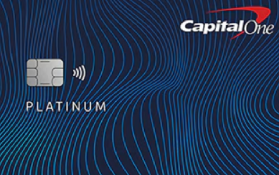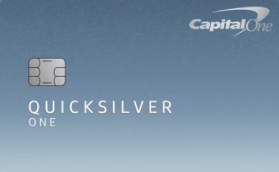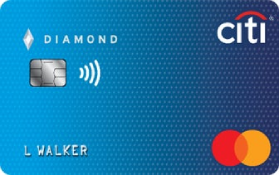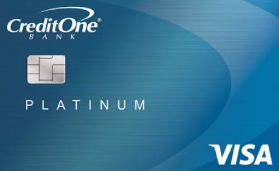Short Review of Best Credit Cards For First Time Applicants
| Name | Best for | Rewards Rate | APR | Apply |
|---|
FIT™ Platinum Mastercard® | Unsecured | This card doesn't offer cash back, miles or points. | 35.90% Fixed | Apply now On Continental Finance site |
Celtic Bank Surge® Platinum Mastercard® | Walmart purchases | This card doesn't offer cash back, miles or points. | 35.90% Fixed | Apply now On Celtic Bank‘s site |
| | 1% Cash Back rewards^^ on payments made to your Revvi Credit Card. | 35.99% * | Apply now On the Revvi secure website |
| Low income | 1% Earn 1% cash back rewards on payments made to your First Access Credit Card. | 35.99% | Apply now On the First Access Visa® Card secure website |
| | 1% Cash Back on all purchases. | 35.99% * | Apply now On the Total Visa® Card secure website |
First Progress Platinum Prestige Mastercard® Secured Credit Card | | 1% Cash Back rewards on payments. | 14.24% Variable | Apply now On First Progress’s site |
Merrick Bank Secured Credit Card | | This card doesn't offer cash back, miles or points. | 22.70% Variable | Apply now On Merrick Bank‘s site |
First Progress Platinum Select Mastercard® Secured Credit Card | | 1% Cash Back on payments made to your First Progress Secured credit card account. | 18.24% Variable | Apply now On First Progress’s site |
The Bank of Missouri Destiny® Mastercard® | Unsecured | This card doesn't offer cash back, miles or points. | 35.9% | Apply now On The Bank of Missouri‘s site |
| Cash Back, Without SSN, Student | 1% Cash Back on all purchases with your Deserve EDU Mastercard. Once approved, you'll automatically start earning Cash Back on all purchases. | 22.99% Variable | Learn more |
Capital One Platinum Secured Credit Card | Single mom, Without SSN | This card doesn't offer cash back, miles or points. | 29.99% Variable | Learn more |
Capital Bank OpenSky® Secured Visa® | 18 year old | This card doesn't offer cash back, miles or points. | 25.64% Variable | Learn more |
Capital One Platinum Credit Card | Without SSN | This card doesn't offer cash back, miles or points. | 29.99% Variable | Learn more |
Capital One QuicksilverOne Cash Rewards Credit Card | Fair credit | 1.5% Cash Back on every purchase. | 29.99% Variable | Learn more |
| First time applicants | This card doesn't offer cash back, miles or points. | 26.74% Variable | Learn more |
Credit One® Bank Platinum Visa For Rebuilding Credit | Retired person | 1% Cash Back rewards on gas and groceries as well as your monthly mobile phone, internet, cable, and satellite TV services. | 29.74% Variable | Learn more |
Card's description:
First Progress Platinum Prestige Mastercard® Secured Credit Card
The First Progress Platinum Prestige Mastercard® Secured credit card is another secured credit card from the First Progress. The credit line limit is determined by a fully refundable security deposit of $200 — $2000, submitted with the application. You can qualify for this credit card with no or bad credit score. Compared to the First Progress Platinum Elite Mastercard® Secured credit card, the First Progress Platinum Prestige Mastercard® Secured credit card has a lower APR for purchases (14.24%) and a higher annual fee ($49). Also, the card doesn’t offer any rewards, and it can’t be upgraded to another credit card.
Read more about First Progress Platinum Prestige Mastercard® Secured Credit Card
Celtic Bank Deserve EDU
If you are a student, you should definitely consider getting the Deserve EDU for Students. This card does not have a Social Security number and credit history requirements, making it easier for international and first-year students to be approved. Deserve EDU for Students doesn’t have an annual fee and offers 1% cash back on all purchases. Additionally, it offers a statement credit for a 12-month Amazon Prime Student subscription after you spend $500 in the first three billing cycles.
Read more about Celtic Bank Deserve EDU
Capital One Platinum Secured Credit Card
While the Platinum Platinum Secured Mastercard® issued by Capital One does not offer cash back or other types of rewards, the appeal lies in its simplicity. This credit card has no annual fee and allows the cardholders to choose their monthly due date. The Platinum Secured Mastercard® requires at least a $49 refundable security deposit. However, after 6 months, you can be considered for a better credit card with no additional deposit required.
Read more about Capital One Platinum Secured Credit Card
Capital Bank OpenSky® Secured Visa®
The OpenSky® Secured Visa® credit card, issued by Capital Bank, is a decent option for people seeking to build their credit. It can be opened with a minimum $200 refundable security deposit, which will serve as your credit line limit. This card, unfortunately, doesn’t provide an opportunity to be upgraded for a better credit card after some time.
Read more about Capital Bank OpenSky® Secured Visa®
Capital One Platinum Credit Card
The Capital One Platinum Mastercard comes with several useful benefits that help you build your credit. The card offers free credit monitoring with CreditWise. Additionally, this credit card does not have annual or foreign transaction fees and doesn’t charge a penalty APR. Despite having a high APR for purchases and balance transfers (29.99%), the Capital One Platinum Mastercard credit card is still an option to consider. The card doesn't require a security deposit and provides the opportunity for its cardholders for a credit limit increase.
Read more about Capital One Platinum Credit Card
Capital One QuicksilverOne Cash Rewards Credit Card
The Capital One QuicksilverOne Cash Rewards is the best credit card to consider for first-time applicants. It offers a 1.5% unlimited cash back on every purchase. Once you spend only $2,600, you’ll justify an annual fee of $39 on this credit card. In a period as short as 6 months, you can be automatically considered for a better credit card from Capital One.
Read more about Capital One QuicksilverOne Cash Rewards Credit Card
Citi Secured Mastercard®
The Citi Secured Mastercard® credit card is also a great option for people with no credit history, and when used properly, it may help you establish credit. The card doesn’t have an annual fee but requires a $200 minimum security deposit. As for other terms, this credit card doesn’t provide rewards and has quite a high APR for Purchases and Balance Transfers (26.74%). Overall, the Citi Secured Mastercard® is a sound credit card for building a credit score.
Read more about Citi Secured Mastercard®
Credit One® Bank Platinum Visa For Rebuilding Credit
If you are looking for a card to build your credit with an unsecured credit card, we suggest you pay attention to the Credit One® Bank Platinum Visa For Rebuilding Credit. Credit One® Bank manages a regular review of your account for a possible credit line increase. Also, this credit card offers online access to your Experian credit score. With the Credit One® Bank Platinum Visa For Rebuilding Credit, you can earn 1% cash back rewards on categories like gas, grocery, Internet, and cable.
Read more about Credit One® Bank Platinum Visa For Rebuilding Credit
Should I get a starter credit card?
A starter credit card is a card for applicants with a limited or no credit history. Such credit cards are designed to help people build their credit so that they would be able to apply for a credit card with better terms.
There are two main types of starter credit cards — secured and unsecured credit cards.
Secured credit cards require applicants to make a security deposit to get approved. Generally, this deposit is equal to the desired credit limit. You will receive your deposit back either when you close your account or by getting it refunded by upgrading to the unsecured card. Some secured credit cards do not have an annual fee, which can be a nice bonus. The best secured cards options are the Citi Secured Mastercard® and the OpenSky® Secured Visa® Credit Card.
Unsecured credit cards differ from secured cards by not requesting you to put up a security deposit. This type of credit card tends to have higher interest rates, but they can offer cash back rewards. If you're looking for an unsecured credit card, consider the Capital One Platinum Mastercard Credit Card and the Capital One QuicksilverOne Cash Rewards Credit Card.
Student credit cards, part of an unsecured credit card group, are sometimes identified as separate starter credit cards. They also do not require a security deposit to get approved, and these credit cards tend not to charge an annual fee. It’s obvious that these credit cards are available to students only. The best options for student credit cards are Discover it® Student Cash Back, Discover it® Student chrome and Journey Student Credit Card from Capital One.
If you’re considering getting a starter credit card to build or improve your credit score, you should go for it. Starter credit cards do not offer a wide range of perks and bonuses and generally have higher fees. However, after some time, you can get a better credit card with better conditions.
Why is building credit important?
Your credit score plays an essential role in your life. It’s one of the ways companies measure your financial trustworthiness. The higher the credit score you have, the better credit card you can get. A good credit card comes with various benefits and rewards.
Credit score directly affects the terms of all the loans you take, including car loans and mortgages. Lenders take into account your credit score to decide on whether to give you a loan in general, as well as to finalize the terms of the loan. A bad credit score results in higher rates on your loan.
Most utility services providers, including cable, telephone, water, and cell phone service, also perform credit checks to determine whether you’ll be able to pay for their services on time.
And in some cases, employers may do a soft credit check (an inquiry into your credit report) as a part of the hiring process. It can influence the final decision on whether you get the job.
How to get started with my first credit card?
If you are new to credit cards in general, you undoubtedly have a few concerns about using them properly and which credit cards are best for beginners. Take into account these steps while choosing and applying for your first credit card.
First thing first, pay attention to the credit score requirements of a particular credit card. Starter credit cards do not require applicants to have a high credit score, while other types of credit cards may require you to have at least a Fair credit score (starting from 580 points). You should always check your credit score, as even several points may be significant for credit card issuers while reviewing your application.
After you’ve decided on the credit card, you’ll be required to present the following information to the credit card issuer:
- Legal name
- Date of birth
- Address
- Social Security number (some cards do not require SSN)
- Annual income
You also may be asked to provide information on your employment and bank account. It's important to apply only for cards that you're likely to be accepted. Remember that once you apply, your credit score may lose a few points.
How to choose a credit card for the first time?
An ideal first credit card is unique to everybody. While carefully choosing it, you should consider your circumstances before deciding on it. Here are the main points to keep in mind when you choose the best beginner credit card.
Checking your credit score before applying for a credit card might be the first step. You may have no credit history at all. In this case, you'll most likely need to start with a secured credit card. On the other hand, you may have a credit history without previously obtaining a credit card.

For example, you could have been an authorized user on somebody’s credit card. It allows you to build at least some credit, and thus to have better starting options.
You may also find it necessary to look through APRs. Most starter credit cards have high APRs, while some provide promotional rates on purchases or balance transfers. Make sure you're aware of the variable APR you'll be charged on your purchases, and remember that paying your balance in full and avoiding carrying a balance can save you money. Nevertheless, due to the higher risk for issuers, you’ll likely have higher interest rates on your starter cards.

Don’t forget to look through the fees of the card. Credit card issuers may impose relatively high fees for card maintenance (annual fee), using the card abroad (foreign transactions fee), or paying up late (late fees). However, you can find a starter credit card with little or no fees, making them more plausible options.
Finally, make sure to look through the rewards and bonuses of the credit card. Many unsecured and secured credit cards allow their holders to receive rewards on their spendings. Nice bonuses to consider are those offering a free credit score on your monthly statement, purchase protection, extended warranties, and travel insurance. By comparing the amount of cash back and other types of rewards and benefits, you may find the card that will be ideal for you.
Making the most of my starter credit card?
It’s important to use your starter credit card wisely. After all, it builds your credit history. The more responsibly you use your starter credit card, the better credit cards you could get in the future. Here are a few tips on how to make most of your starter credit card.
- Set your budget. You can avoid falling into debt by having a realistic estimate of how much you can spend and pay off at the end of the month.
- Track your spendings. After the budget is set, you need to keep track of your spendings throughout a period, like a week or a month. Once you reach your budget limit, avoid using the card again until your balance is paid off. If it happens often, reevaluate your budget or spendings.
- Use the minimum of your credit limit. It can be too inviting to max out your credit card limit. Still, you shouldn't do it at any cost. The amount of credit you use is the second most important factor in your credit score, and having a large credit card balance can harm it.
- Check your statements regularly. Your credit card issuer will send you a statement every month that includes a summary of your transactions from the previous payment cycle. Even if you've planned your monthly payment, it's still vital to review your billing statement to make sure there are no mistakes or illegal transactions. If you notice one of these, contact your credit card company right away to get them resolved.
Additionally, you should monitor your credit score and obtain your free annual credit report that will include a detailed record of your past use of credit. All of these will allow you to get the most of your starter card by improving your credit significantly.
Beginner credit card tips
After you are approved for the first credit card, you need to use it wisely. After all, while a beginner credit card might help you increase your credit score, making incorrect decisions can result in you having worse credit than when you started.
- Consider keeping your account open. The age of your oldest account has a significant impact on your FICO Score. With that in mind, you should understand that canceling accounts might influence your credit. To avoid the temptation of closing your account, consider getting a beginner credit card with no annual fee.
- Do not rush. You need to be patient about building your credit score. The more on-time credit card payments you make, the more details your future credit reports gain. It will take time to build your credit score, but the work will be worthwhile.
- Make larger payments. If you carry debt on your credit card and only pay the minimum payment required, interest charges will quickly mount. It will increase your balance month after month until you're buried in debt. And it will hurt your credit score.
- Be punctual with your payments. The most critical component in credit score is payment history, and even one late payment can have a significant impact. Set up notifications to remind yourself when your bill is due, or set up an automated credit card payment with your bank to avoid late payments.
How to apply for a credit card
Once you’ve come up with your choice of an ideal credit card, apply for it. The process is not difficult, however, it’s better to be prepared.
As a first step, you need to decide on how you will apply for a credit card. You can do it online, in person, or via mail. If you choose to apply online, you have to make sure that you are using the correct website of the credit card issuer. Scammers may steal your data through mirrored websites.
A second step requires you to fill in all the information asked by the credit card issuer. Look carefully through everything you have to provide, as the lack of information may cause an instant rejection. We also advise you to provide truthful information on your credit card application. Providing falsified information even on the starter credit cards is not worth it, as it may lead to negative consequences.

If you are worried about your odds, you can try a pre-approval option. In a pre-approval process, the issuer can assess whether you meet the initial requirements for the credit card. As a result, you will be informed whether you pass the minimum criteria for a card. Pre-approval doesn’t guarantee you’ll get the credit card should you apply for it.
Finally, the third step is waiting for your result. Sometimes you may receive the answer in a few minutes, but for some credit cards, you need to wait for a week or even two. Generally, you’ll be notified of the final decision via email, but you also may need to check the website you applied through. Some credit card issuers have extensive representation across the U.S., and you can visit their office or contact them by phone at any time.
FAQ
What are other credit cards to consider?
Surge® Platinum Mastercard® from Celtic Bank is a decent option for starters. While this credit card doesn’t offer cash back rewards and charges an annual fee, its advantages are monthly credit reporting to major bureaus and the possibility to increase the credit limit. Another good credit card for newcomers to the US is the Deserve Pro credit card. It’s a no-annual-fee card with cash back rewards on travel, entertainment, and dining.
How to apply for a credit card for the first time?
You can apply for a credit card online or in person at a credit card issuer's office. The application conditions are the same for everyone, even if it's your first time applying for a credit card. When applying for a credit card, you can be asked to provide your income, Social Security number, employment details, phone number, and address. Be sure to review all the required information in advance.
How to find a good credit card?
Check your credit score to understand which credit cards you can apply and be approved for. Look for benefits and rewards that will be useful for you. Don’t forget to check the fees and APRs of the potential credit card, as they will influence your credit card-related expenses, like annual fee and interest rate. You can find all the necessary information about credit cards on the website of the credit card issuers.
Where to get my first credit card?
You can apply for a credit card online, in person, or via mail with a bank, credit union, or store that offers its credit card.
When to get my first credit card?
You can legally get your first credit card at the age from the age of 18. If you are between 18 and 21, you need a parent or guardian to cosign your credit card application. Alternatively, you can choose to become an authorized user on someone’s credit card to build your credit score at a younger age.
